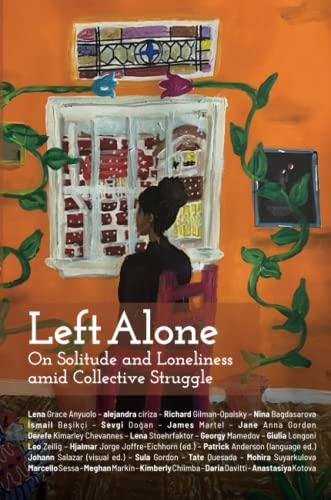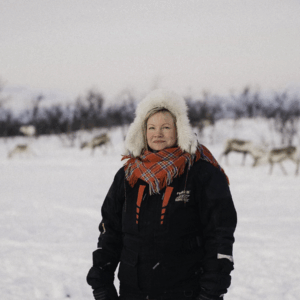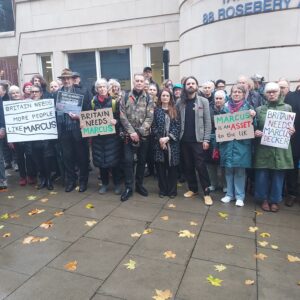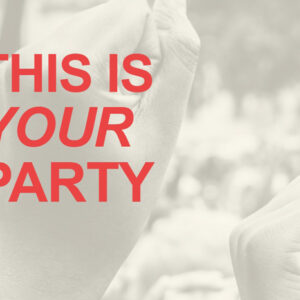This review was published first in the latest edition of Asylum: Magazine for Radical Mental Health.
Co-edited by Hjalmar Jorge Joffre-Eichhorn and Patrick Anderson, Left Alone: On Solitude and Loneliness amid Collective Struggle, which is published by Daraja Press, and can be downloaded for a contribution or even for free, brings together fifteen authors and seven visual artists from across the world to both individually and collectively reflect – through words and images – on ‘Left Loneliness’ and related states of solitude, isolation, and alienation. Connecting the personal and the political, the book includes contributions from Argentina, Kenya, Kyrgyzstan, Turkey/Kurdistan, Jamaica, Italy, Switzerland, the UK, Germany, and the USA.
Mental distress and mental health
The experiences collected in this book will resonate with many long-term activists and comrades. Not only have we been through successive conflicts with the powers that hold in place the miseries of capital accumulation and other related forms of exploitation and oppression, but we also find those conflicts replicated in the social movements and organisations we are part of. These are cries from the heart and we should read them not only as complaint but as constructively hopeful reflections on what is to be done in times of neoliberal immiseration and accumulated defeats for the Left.
The chapters cover a broad range of approaches to aspects of mental distress and mental health. There are intense, and at times disturbing, reflections on the depth of despair that defeats have wrought on all of us, and on each of us in different contexts, in different parts of the world, in different ways. It was a real achievement for the editors to reach out to authors and artists across such diverse contexts.
There is also an enlivening and invigorating discussion of what remains alive within our struggle, what is possible to rebuild out of the fragments of the Left, and what we can learn from how the most marginalised still resist, turning individual experience into collective action.

The distress is very evident in the editorial which reads like a cry of desperation. It echoes what I have heard from burnt-out comrades and ex-comrades ready to retreat into themselves. These are activists exhausted by confronting capitalist, patriarchal, racist, and disabling forms of power that are more efficiently ‘intersectional’ than what we on the Left have been able to build in response. Then, yes, the danger is that our individual attempts at ’recovery’ result in a kind of isolation that divides us from each other and encourages us to cope by adapting to power and surviving as obedient citizens, abandoning struggle.
The opening chapter sets up the problem: that defeat after defeat for the Left, and for those allied to the Left, who are watching the planet spinning into alienating, self-destructive end times, is leading to an epidemic of what the book diagnoses as Left Loneliness.
Recognise this? – ‘No kidding, I am just so flat out exhausted, overwhelmed, hopeless and discouraged right now, so disillusioned and unhappy – and no matter how I try to mend it, it’s not getting any better. No snapping out of it. Fuck me.’
In some ways this is not new; the revolutionary Marxist Rose Luxemburg is usually portrayed as an always-upbeat fighter, but at times she was what we would now call depressed, and she had to fight just to keep going, commenting at one point: ’Oh how I dread meeting people. I wish I lived among animals’.
This is a deep psycho-affective problem in which those of us who keep struggling often find ourselves unwittingly, and sometimes even spitefully, relaying our disappointment and hopelessness into the movements and organisations that we need to enable us all to fight back.
Experience and resistance
Many of the chapters in the book speak of a different agenda, not so much taking up the challenge of how to rebuild the Left from these ruins but telling us stories about their experiences that give deeper insight into what has been happening to them. In some cases, I feel this results in too brisk and reassuring moral lessons that we should pull ourselves together again. Some of those ostensibly upbeat lessons are necessary, but risk being seen as bypassing the very problem the book focuses upon, a problem we need to spend a little more time working through before we can move on.
There is a moving contribution by an Argentinean Trotskyist comrade about isolation under the dictatorship; suffering not only the ’disappearances’, but the terror of even speaking the names of those who are missing, and the toxic silence enforced in families. Two very interesting ’queer communist’ contributions from Kyrgyzstan point to the difficulty of organising in conditions where Left discourse itself is pathologised; a pathology which reaches into each of us who still try to keep genuine struggle going. There is an interesting discussion of the intersection of Black and Deaf isolation, and of the ways that marginalisation in each case leads to a sense of solidarity and to the possibility of challenging power.
This should not, the book is clear, be ’a call for a type of Leninist toughening up, Left self-disciplining and optimisation and/or self-care’. There are moments of tough love in the book (with one contributor, rather harshly I felt, arguing that ’the wasting of each of our potential is a crime’ and so ’each of us and we together should not tolerate it’), but the call and the ethos of the book is for something different from that, and that is enhanced by the images provided by the invited artists.
The book raises an important question about what we are living through now, even if the contributors do not all answer it, and in some cases, I feel, avoid the question, wanting perhaps to talk about successes instead of dwelling on failures. This is, however, a good beginning. It is worth reading and connecting with some of the initiatives that help us to see distress and health as matters that are political and personal.
Art (54) Book Review (127) Books (114) Capitalism (68) China (81) Climate Emergency (99) Conservative Government (90) Conservative Party (45) COVID-19 (45) EcoSocialism (59) Elections (83) Europe (46) Fascism (62) Film (49) Film Review (68) France (72) Gaza (62) Imperialism (100) Israel (129) Italy (46) Keir Starmer (56) Labour Party (114) Long Read (42) Marxism (50) Marxist Theory (48) Palestine (179) pandemic (78) Protest (154) Russia (341) Solidarity (146) Statement (49) Trade Unionism (142) Ukraine (349) United States of America (134) War (370)
Latest Articles
- In Solidarity with Refugees and MigrantsMigrants and refugees are not our enemies, but are being used by the powerful to distract from the real cause of social injustice. Susan Pashkoff writes against this moral panic.
- COP30: The shift to green capitalism fails to materialiseChristian Zeller explains how despite dramatic warning signs, global politicians continued to back the fossil fuel-based economic order
- Learning from Sami cultureDave Kellaway reviews Maret Anne Sara’s exhibition on the culture of the Sami indigenous people
- Eco‑activist Marcus Decker fights deportationDave Kellaway reports from the protest held on Monday 10th November outside the immigration tribunal
- A*CR’s Your Party AmendmentsAnti*Capitalist Resistance proposes amendments to Your Party’s founding documents.






